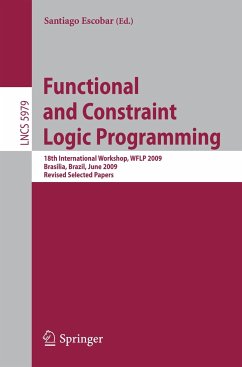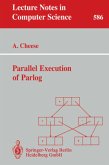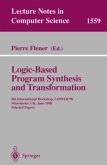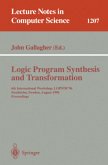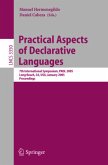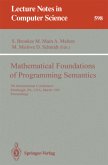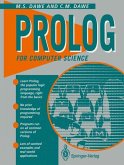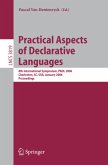Thisvolumecontainsaselectionofthepaperspresentedatthe18thInternational Workshop on Functional and (Constraint) Logic Programming (WFLP 2009), held on June 28, 2009 in Bras ?lia, Brazil. Previous WFLP meetings were held in Siena (2008), Paris (2007), Madrid (2006), Tallinn (2005), Aachen (2004), Valencia (2003),Grado(2002),Kiel(2001),Benicassim(2000),Grenoble(1999), Bad Honnef (1998), Schwarzenberg (1997, 1995, and 1994), Marburg (1996), Rattenberg (1993), and Karlsruhe (1992). The aim of the WFLP series is to bring together researchers interested in functional programming, (constraint) logic programming, as well as the integ- tion of the two paradigms. It promotes the cross-fertilizing exchange of ideas and experiences among researchers and students from the di?erent commu- ties interested in the foundations, applications, and combinations of high-level, declarative programming languages and related areas. WFLP 2009 solicited papers in all areas of functional and (constraint) logic programming, including but not limited to: Foundations:formalsemantics,rewritingandnarrowing,non-monotonicr- soning, dynamics, and type theory. Language Design: modules and type systems, multi-paradigm languages, concurrency and distribution, and objects. Implementation: abstract machines, parallelism, compile-time and run-time optimizations, and interfacing with external languages. Transformation and Analysis: abstract interpretation, specialization, partial evaluation, program transformation, and meta-programming. Software Engineering: design patterns, speci?cation, veri?cation and vali- tion, debugging, and test generation. IntegrationofParadigms:integrationofdeclarativeprogrammingwithother paradigms such as imperative, object-oriented, concurrent, and real-time programming. Applications: declarative programming in education and industry, doma- speci?c languages, visual/graphical user interfaces, embedded systems, WWW applications, knowledge representation and machine learning, - ductive databases, advanced programming environments and tools.

